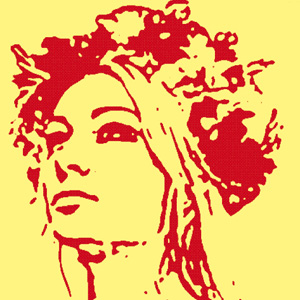In 1930 a best-selling book appeared and was followed by a stage revue that ran and toured for years. This was 1066 and All That.
VIVE LA REVOLUTIONMark Steel
Scribner
289 pp
£10.99
It was written by two teachers, Walter Sellar and Robert Yeatman, and it parodied the way in which history was then taught and learned in school. It included some helpful comments on the French Revolution, which, it explained:
"...caused great loss of life, liberty, fraternity, etc., and was, of course, a Good Thing, since the French were rather degenerate at the time; but Napoleon now invented a new Convention that the French should massacre all the other nations and become a top nation, and this, though quite generate, was a Bad Thing."
The authors paraded their low-grade degrees on the title page and included in their sources "La Vie Parisienne". They were precursors of the writer of this stand-up history of the French Revolution which belongs to a quite different and useful trend of recent years, the emergence on radio and television of radical comedians who manage to voice devastating social criticism precisely because they are funny. I'm, thinking of people like Ben Elton, Michael Moore as well as of Mark Steel.
Any of these authors will tell us that it's harder than we think, for they often have to coax a smile out of very marginal anecdotes, and this must be even harder when you are writing at book length on a specific topic. There are places where the funniness grates, but they are outnumbered by the quips that make you laugh aloud at their appositeness, not merely to 1793 but to our current condition.
Mark Steel reminds us that the storming of the Bastille in 1789 actually released only seven prisoners, a figure that needs comparison with the death of Stalin in 1953 which began the slow liberation, into poverty, of millions. And he has a particular talent for noting historical parallels, as well as the extent to which historical events and their outcomes relate to quite unpredictable accidents.
Above all, he is aware of the ponderous pomposity of the history industry, and he gives us a short, sharp and readable account of what actually happened after 1789, with memorable vignettes of the more celebrated characters and of their ultimate fates, for, as he observes, almost every major player perished in the drama they were writing.
In subsequent political regimes in France, one virtually constant factor has been a determination to separate the church from the state, simply to ensure that citizens can manage to jog along together.
And the author seldom fails to seize the chance to remind us of the parallels between the grotesque French royal family that was swept away by public outrage in the Revolution, and the pathetic British royal family, with its sycophantic publicity machine. Our bunch have survived into the twenty-first century as, collectively, the country's largest landowners, so we can't simply ignore them.
I don't think that Mark Steel's merry and deflationary approach is quite adequate in explaining how a nation that had been obliged to leap into political awareness and to sweep away what Marx called the muck of ages should find itself entrapped into imperialist adventures and the pointless deaths of millions, by the confidence trickster Napoleon. It's the same question that we always ask in retrospect, about the rise of, say, Mussolini, Stalin or Hitler.
Caesar was only great because the Romans were on their knees, and the triumph of the Revolution was that the down-trodden found the inspiration to get up off their knees. This is the moment the book celebrates.

